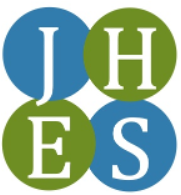ABSTRACT
The volcanic Molucca islands have provided the world with their precious cloves, which have been highly valued in medicinal properties for millennia. Cloves have antibacterial, antiviral, and analgesic characteristics. They were considered silver bullet cures in medieval epidemics and the early COVID-19 pandemic response. Cloves originated from Ternate Island, the center and regional trade hub of the Molucca Islands. Its cloves had reached Babylonia 4,000 years ago, marking its importance in global trade.
Qualitative research was conducted on the 1775 Mount Gamalama eruption’s impact on indigenous knowledge development. To confirm the findings, I conducted field visits, key informant interviews, field observations, and a literature review. Tolire Lake is an apparent landmark in Takome village, which has a sacred white crocodile, a java plum hill, a lush forest, stunning landscapes, and an underwater mythical village. The residents are testaments to human resilience, preserving indigenous knowledge and turning it into disaster risk reduction tools. They built settlements on safer ground and designated parts areas for conservation-based tourism. In addition, modern science introduction enhances disaster early warning and alert systems and empowers indigenous communities.
Understanding indigenous knowledge and wisdom is critical to building resilience and sustainability through disaster risk reduction (DRR) efforts. Indigenous knowledge produces lessons in environmental protection, social justice, and economic growth. The world can learn from indigenous and scientific knowledge combined to sustain the island, its people, and its prosperity.
ABOUT THIS ARTICLE
Author and Affiliation
Charles Mekardi Ham
National Disaster Preparedness Training Center, University of Hawai’i at Manoa, Saunders Hall 113, 2424 Maile Way, Honolulu, HI 96822, USA
*correspondence: cmham@hawaii.edu
| Received | Revised | Accepted | Published |
| 31 May 2024 | 28 September 2024 | 30 September 2024 | 2 October 2024 |
Cite this article
Ham, C. M. (2024). Reflecting on the 1775 Mount Gamalama Eruption: Lessons from Indigenous Knowledge for Sustainable Development in Ternate Island, North Maluku Province, Indonesia. Journal of Human Ecology and Sustainability, 2(3), 2. https://doi.org/10.56237/jhes24ichspd01
Rights and Permissions
This is an open-access article distributed under the terms and conditions of the Creative Commons Attribution (CC-BY-NC-ND-4.0) license (https://creativecommons.org/licenses/by-nc-nd/4.0/), which permits unrestricted use, distribution, and reproduction in any medium, provided you give appropriate credit to the original author(s) and the source, provide a link to the Creative Commons license, and indicate if changes were made.
